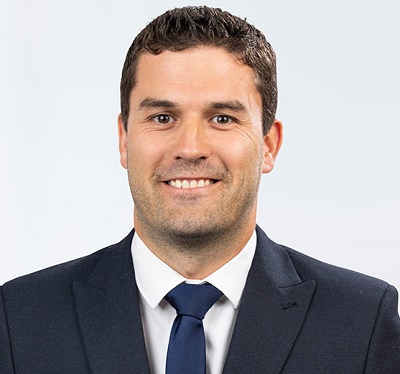 Five candidates were awarded commendations by the Membership Assessment Advisory Panel (MAAP) for submitting high quality APC submissions in 2022.
Five candidates were awarded commendations by the Membership Assessment Advisory Panel (MAAP) for submitting high quality APC submissions in 2022.
Below these candidates share their top tips for those looking to apply.
-
Applied through

Experienced Practitioner APC (EP-APC)
Commended
Whole submission
Qualifications:
- Master of City and Regional Planning at University of Cape Town
- Bachelor of Social Science (Hons) at University of Cape Town
My career:
I am a Principal Planning Policy Officer at Guildford Borough Council (GBC). I have spent the past six years at GBC working across a wide range of specialist policy areas. My role has included supporting the progression of the first part of our Local Plan to adoption in 2019 and the second part from inception to and through examination, toward adoption in 2023.
Prior to that, I led a team of policy planners at the City of Cape Town in producing a range of planning documents for the eight planning districts within the metropolitan area. This included working closely with transport planning colleagues to support the local emergence of more walkable, public transport-oriented developments. I started my career at MCA, a planning consultancy in Cape Town, where I was promoted to Associate. Whilst at MCA, I played a lead role in compiling local plans and strategies for local planning authorities in various parts of the country, alongside preparing planning applications for public and private sector clients.
APC tips
Approach your submission as a learning experience
Reflective practice is invaluable, although at times easy to neglect. Your PCS is a perfect opportunity to spend some time reflecting on what you did, why and how you achieved success (or failure!), and how these experiences demonstrate specific competencies. Doing so effectively is key for your submission, but the exercise has value well beyond that.
Don’t be afraid to change your mind
Select another PCS case study if you find it’s not working for you. When I started preparing my submission, I had three case studies in mind for my write up. As I started drafting outlines and reviewing them against the competencies, it just didn’t seem to be working but I muddled on, perhaps for too long, before replacing two of my case studies with another one and shifting the focus of the remaining one! If you’re stuck, don’t worry. Try another case study or chat to a professional colleague or mentor who might spark an idea of how you might shift emphasis within your chosen example to allow it to better reflect how your actions demonstrate the required competencies.
Don’t feel that you’re alone
There are people and resources that can help. Completing your submission can sometimes feel like a mountain to climb, especially with work and other pressures never far away. I found the RTPI Main Guidance and other resources on the website to be really useful to keep my submission aligned to expectations. I was also very fortunate to have a couple of MRTPI colleagues who pointed out some general submission pitfalls that, thanks to them, I was able to avoid – specifically the need to make sure you address all the competencies in your PCS! -
Applied through

Commended
Whole submission
Qualifications:
- BSSc Urban Studies Programme at the Chinese University of Hong Kong (2012-2016)
- Master of Urban Design at the University of Hong Kong (2016-2017)
- MSc Urban Planning at the University of Hong Kong (2017-2019)
My career:
After acquiring the Master Degrees from the University of Hong Kong, I joined the Town Planning Graduate programme hosted by the Planning Department of the Hong Kong SAR government. From November 2019 to October 2020, I worked for the Urban Design & Landscape Section, reviewing planning applications and studies from the urban design, visual impact and air ventilation perspectives. From November 2020 to April 2021, I was shifted to the Hong Kong District Planning Office, assisting my team to process planning permission applications on kindergarten, historical building and commercial uses. On a daily basis, I prepared draft responses to other government departments on the issues relating to building plans, food licences, land matters, and public utility provision from planning perspective. I also drafted replies to address public enquiry on provision of elderly facilities and open space in the community.
My current employer is the MTR Corporation Limited, which is a listed company in Hong Kong focusing on transit-oriented development. From April 2021 to August 2021, I consolidated governmental regulations and gathered baseline information in neighbourhood scale to formulate a mixed-use development scheme for a site near a planned railway station. Since August 2021, I am part of another project team working on the implementation of a large-scale residential development atop an active railway station. My role is to ensure the timely approval and appropriate quality of statutory submission. As some parts of this comprehensive development have been occupied by a certain number of residents, our team occasionally receives enquiries or suggestions from the local stakeholders. I am responsible for providing town planning inputs to address their concerns.
APC tips
Keep record of planning tasks as a habit
You may be aware that candidates are expected to provide at least two entries per month for the Reflective Journal submission. It is hard to recall all the details in the final months before submission if no record has been kept since the beginning of your career. Fortunately, I create my own database and regularly jot down a summary and progress of each planning task to avoid overlooking any of them. If you write more details, you will realise that identifying case studies for the PCS submission is much easier. In addition, I have set a column to write down reflections so that I can remind myself of what to do or how to improve when a similar situation comes again.
Read the APC application guidelines early and thoroughly
The APC guidelines, especially the 10 competencies for the PCS, may look lengthy at first glance. Yet, from another point of view, it consists of a lot of useful examples and tips to help you pick the most relevant contents and complete the submissions smoothly. Reserving more time to digest the content again and again will make you feel more confident when preparing and submitting the APC application.
Seek comments from mentors and others
As the assessors may have limited knowledge about your experience or local planning context, you will have to make sure sufficient explanation is provided. You may consider asking your seniors, your colleagues or even a friend without town planning background to comment on your drafts and see whether they understand what you have written. You may also ask them to proof-read your content to make sure the submissions are presentable.
-
Applied through

Experienced Practitioner APC (EP-APC)Commended
PCS
Qualifications:
- MA Urban Design at University of the West of England, Bristol (2011 - 2012)
- BSc (Hons) City and Regional Planning at Cardiff University (2007 – 2011)
My career:
I started my career as an Assistant Urban Designer at PRP Architects in 2014, designing estate regeneration masterplans in London. In 2016, I joined Dar Group, working on large-scale masterplanning and spatial framework projects in the Middle East. In 2022, I joined Lichfields at the Cardiff office, where I am working on a variety of interesting planning and urban design projects across the UK.
APC tips:
If you meet the eligibility criteria, I would definitely recommend the Experienced Practitioner route to Chartership. Picking the right case studies will make it easier when writing your PCS. Before starting to write your submission, I would suggest listing out which competencies you will cover under each of the case studies, which will help you in your selection.
-
Applied through

Commended
Whole submission
My education and career
I completed my undergraduate degree in Geography at Cambridge University, during which I furthered a budding interest in the environmental, economic and social factors that influence place and space. I elected modules in Urbanism, wrote a dissertation on Green Belt developments in my hometown of Sheffield and secured short work experience placements at a London Borough, a multi-disciplinary property company in Leeds and the Royal Geographical Society. A career in town planning therefore appealed to me when the time came to pick a path and I applied for the Lichfields Graduate Development Programme, which included support throughout the APC process.
I moved to London in September 2018 to begin working at Lichfields’ London office as a Planner and simultaneously start a part-time Masters in Spatial Planning at the Bartlett, UCL. It was a busy two years as I settled into a new city and my first job while juggling the course. Despite this, I really enjoyed part-time study as it brought together theory and practice and provided great context to my degree.
As part of Lichfields’ graduate rotations, I began in a commercial retail and leisure team before moving to the residential team in the London office. I stayed put in housing and was later promoted to Senior Planner. I now work on major residential-led mixed-use developments across London, providing detailed planning strategy advice and helping to navigate proposed schemes through the planning process.
APC tips
The best case study may not be your favourite project
Think carefully about which of your projects help to demonstrate the competencies. For example, it might be better to discuss a smaller task that you completed from start to finish or something that went wrong and you had to resolve, rather than your largest or most impressive development.
Use the competency wording
Make it as easy as possible for your assessors to identify where you meet the competencies by using the terminology from the competencies and guidance in your own writing. Don’t expect them to infer where you have achieved them… spell it out!
Seek support and ask for guidance
Speak to people who have been through the APC process, ask what challenges they faced and the best way to tackle these, talk through your case studies with others and get an APC mentor. While it’s an individually written submission, it doesn’t have to be a lonely process.
Reflect throughout your submission
One of the main skills to demonstrate is your ability to be reflective as you work through your submission. Try to reference areas where you developed over time, learned from previous experiences or adapted your approach the next time. These should be included in your reflective journal and then could then form part of your PDP.
-
Applied through

Commended
PDP
My education and career
I did an undergraduate Bachelor of Science degree in Geography at Royal Holloway, University of London between 2014-2017. Once I finished my degree, I started working at Waverley Borough Council in the Planning Policy team as a Planning Officer in July 2017. In 2018 Waverley Borough Council agreed to part-fund a part-time masters degree (this was before the apprenticeship scheme existed) and allow me to attend on day release. I undertook the Planning, Policy and Practice Master of Arts degree at London South Bank University between 2018-2020 one day a week. In April 2021 I was successfully appointed as a Senior Planning Policy Officer at Waverley Borough Council.
APC tips
- Keep on top of your Reflective Journal and set aside time to fill it out on a weekly or monthly basis. It’s a useful tool to keep track of which skills and competencies you are building and which you still need to work on to make sure you can demonstrate the full range in your Professional Competence Statement. It’s also a huge piece of work and took me more time than any other section of my APC, so it’s beneficial to only have to fill in a few sections at a time.
-
Make use of your mentor and other professionals who have undertaken the APC, particularly those who have done it recently. Feedback from my colleagues on drafts of my APC were invaluable.
- Keep on top of your Reflective Journal and set aside time to fill it out on a weekly or monthly basis. It’s a useful tool to keep track of which skills and competencies you are building and which you still need to work on to make sure you can demonstrate the full range in your Professional Competence Statement. It’s also a huge piece of work and took me more time than any other section of my APC, so it’s beneficial to only have to fill in a few sections at a time.